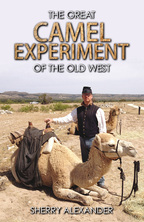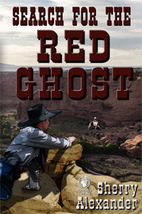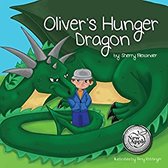 Photo by Dan Stark on Unsplash
Photo by Dan Stark on Unsplash Two themes of “Balboa”, a short story by Sabina Murray, are that a person’s history can create a larger-than-life ego and that absolute power corrupts. Both themes develop through Balboa’s journey from pig farmer to Spanish explorer, interact as his ego elevates him into a God feared by the Indians of Columbia, and build on one another to create a complex account of how his unlimited power is corrupted as he viciously takes lives without remorse.
This is a brief summary of Murray’s short story about the Spanish explorer, Balboa. Wanting to claim the South Sea, or the Pacific Ocean off Columbia in South America, for Spain, Balboa is trudging up a mountain side. As he climbs, he remembers how he went from a pig farmer in deep debt who stowed away aboard a ship to a powerful man known as a god to the native tribes. His desire for power led him to overthrow the governor and set the native tribes against each other. His relationship with the tribes is founded on fear as they have seen him send his war dogs to tear apart chiefs, warriors, women, and children. He knows that the governor he overthrew is on his way back to Columbia to imprison him for his rebellion, so he hopes that all will be forgiven if he claims the ocean for Spain.
The theme about Balboa’s ego, or his self-image, shows the progression of Balboa’s personality from a lowly pig farmer to an explorer. To get away from his gambling debts he stows away on a ship bound for South America. When discovered, as Murray says, “wrapped in a sail” the crew led by Enciso takes pity on him and puts him to work as a member of the crew. His self-image changes as he gains credibility with Enciso and goes with him to Darien on the New World’s east coast. It is here that his personality evolves. Knowing that the Spaniards believe the Indians are merciless, Balboa recognizes the way to conquer the tribes is to spread disagreement among them. He is no longer “escaping his creditors . . .” but since his reputation has spread, he now thinks of “himself as a lion” (Murray; 114, 22).
The second theme used by Murray is that unlimited, or even absolute, power corrupts. This is demonstrated when Balboa begins to think her is stronger than the governor. To Balboa, Governor Enciso, is a weak man and an even weaker governor. He wants the power that Enciso has, so he “. . . organized the rebellion, supplanted the governor” and justifies it in his mind as “all of this done with great efficiency and intelligence” (Murray, lines 78-79). Once Enciso is put on a ship back to Spain, Balboa creates terror to the point that they “think of him as a God” (Murray; 141).
The two themes interact when Balboa excuses his action of overthrowing the governor by thinking, “How could Balboa not act? Enciso did not understand the Indians as Balboa did” (Murray, line 129-130). His ego has reached a point where he now feels that he can turn the Indians on each other, and the reader begins to see how power corrupts. Siding with one tribe, he begins a war using great mastiffs and wolfhounds as Spanish war dogs. “The blood from his great war machine made the rivers flow red with his name” (Murray;137-138) He continues to show his ego driven power until as Murray puts it, “Balboa is loved by no one and feared by all. He has invented an unequaled terror” (Murray; 140-141). The interaction between his ego and the power he acquired is evident in the cruelty he uses to defeat those he considers opponents.
Balboa’s absolute power increases his ego and the two build on one another to the point that he not only thinks it is his duty to kill the Indians for Spain, but he believes it is God’s will. For example, when a monk criticizes him for all the killing, he tells himself “What did the monk understand . . . He said that he was in the New World to bring the Indians to God. So, the monk converts the Indians, and Balboa to God sends them on to God. They work together” (Murray; 163-165). Since Balboa’s ego increased as his power increased, they built on one another to the point that he felt no remorse in the lives he claimed. To him, it was a sense of duty to quickly kill them and send them on to their gods.
In conclusion, ego and absolute power corrupts are the themes of “Balboa”, a short story by Sabina Murray. Both themes develop through Balboa’s journey from pig farmer to Spanish explorer, interact as his ego elevates him into a God feared by the Indians of Columbia, and build on one another to create a complex account of how his unlimited power is corrupted by his self-image as a lion when he viciously takes lives without remorse. In the end, he knew “his cruelty will be recorded along with whatever he discovers,” and it cost him his life. (Murray; 151-152).
This is a brief summary of Murray’s short story about the Spanish explorer, Balboa. Wanting to claim the South Sea, or the Pacific Ocean off Columbia in South America, for Spain, Balboa is trudging up a mountain side. As he climbs, he remembers how he went from a pig farmer in deep debt who stowed away aboard a ship to a powerful man known as a god to the native tribes. His desire for power led him to overthrow the governor and set the native tribes against each other. His relationship with the tribes is founded on fear as they have seen him send his war dogs to tear apart chiefs, warriors, women, and children. He knows that the governor he overthrew is on his way back to Columbia to imprison him for his rebellion, so he hopes that all will be forgiven if he claims the ocean for Spain.
The theme about Balboa’s ego, or his self-image, shows the progression of Balboa’s personality from a lowly pig farmer to an explorer. To get away from his gambling debts he stows away on a ship bound for South America. When discovered, as Murray says, “wrapped in a sail” the crew led by Enciso takes pity on him and puts him to work as a member of the crew. His self-image changes as he gains credibility with Enciso and goes with him to Darien on the New World’s east coast. It is here that his personality evolves. Knowing that the Spaniards believe the Indians are merciless, Balboa recognizes the way to conquer the tribes is to spread disagreement among them. He is no longer “escaping his creditors . . .” but since his reputation has spread, he now thinks of “himself as a lion” (Murray; 114, 22).
The second theme used by Murray is that unlimited, or even absolute, power corrupts. This is demonstrated when Balboa begins to think her is stronger than the governor. To Balboa, Governor Enciso, is a weak man and an even weaker governor. He wants the power that Enciso has, so he “. . . organized the rebellion, supplanted the governor” and justifies it in his mind as “all of this done with great efficiency and intelligence” (Murray, lines 78-79). Once Enciso is put on a ship back to Spain, Balboa creates terror to the point that they “think of him as a God” (Murray; 141).
The two themes interact when Balboa excuses his action of overthrowing the governor by thinking, “How could Balboa not act? Enciso did not understand the Indians as Balboa did” (Murray, line 129-130). His ego has reached a point where he now feels that he can turn the Indians on each other, and the reader begins to see how power corrupts. Siding with one tribe, he begins a war using great mastiffs and wolfhounds as Spanish war dogs. “The blood from his great war machine made the rivers flow red with his name” (Murray;137-138) He continues to show his ego driven power until as Murray puts it, “Balboa is loved by no one and feared by all. He has invented an unequaled terror” (Murray; 140-141). The interaction between his ego and the power he acquired is evident in the cruelty he uses to defeat those he considers opponents.
Balboa’s absolute power increases his ego and the two build on one another to the point that he not only thinks it is his duty to kill the Indians for Spain, but he believes it is God’s will. For example, when a monk criticizes him for all the killing, he tells himself “What did the monk understand . . . He said that he was in the New World to bring the Indians to God. So, the monk converts the Indians, and Balboa to God sends them on to God. They work together” (Murray; 163-165). Since Balboa’s ego increased as his power increased, they built on one another to the point that he felt no remorse in the lives he claimed. To him, it was a sense of duty to quickly kill them and send them on to their gods.
In conclusion, ego and absolute power corrupts are the themes of “Balboa”, a short story by Sabina Murray. Both themes develop through Balboa’s journey from pig farmer to Spanish explorer, interact as his ego elevates him into a God feared by the Indians of Columbia, and build on one another to create a complex account of how his unlimited power is corrupted by his self-image as a lion when he viciously takes lives without remorse. In the end, he knew “his cruelty will be recorded along with whatever he discovers,” and it cost him his life. (Murray; 151-152).
 RSS Feed
RSS Feed



